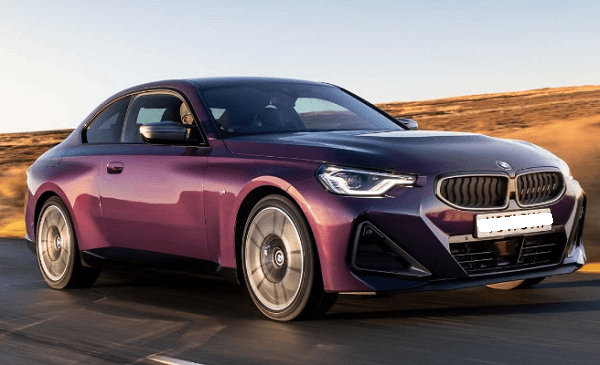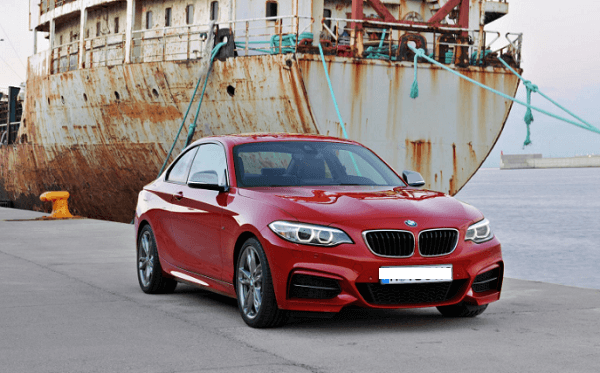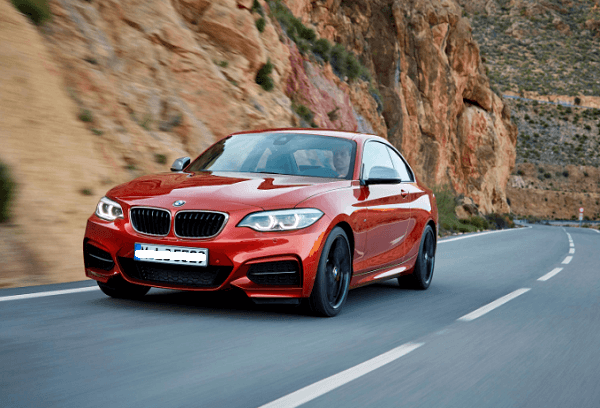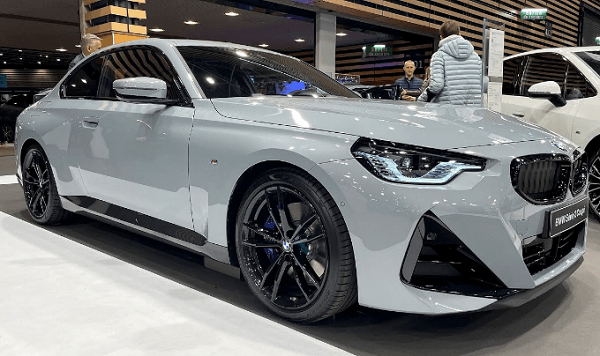BMW 2 Series Years To Avoid – When it comes to purchasing a vehicle, knowledge is power. For BMW enthusiasts eyeing the 2 Series, being well-informed about which years to avoid can save both headaches and pocketbooks in the long run.
In this guide, we’ll explore the specifics of the BMW 2 Series, highlighting the years that are best sidestepped due to potential issues or drawbacks.
The BMW 2 Series has long been celebrated for its sporty demeanor, luxurious interiors, and impressive performance.

This compact luxury car has carved its niche in the automotive world, offering a blend of style and functionality that appeals to a wide range of drivers.
When it comes to investing in a BMW 2 Series, being well-informed about the model years prone to specific issues can save both time and money in the long run.
BMW 2 Series Years To Avoid
However, like any vehicle, not all model years are created equal. Certain iterations of the 2 Series have experienced specific problems or shortcomings that potential buyers should be aware of.
This is where knowing which BMW 2 Series years to avoid comes in handy.

2014-2017 Models: Navigating the Challenges
BMW 2-Series produced between 2014 and 2017 exhibited several common issues that owners reported.
Among the most prevalent problems was related to the engine.
These models were prone to timing chain tensioner failures, which could result in a loss of engine power or, in severe cases, engine failure.
Gasket seal failures led to oil leaks from the engine, potentially causing oil to come into contact with the exhaust system, posing a fire hazard.
Transmission-related challenges were also notable. Some automatic transmissions experienced jerky shifts, while manual transmissions were reported to stick in gear or present difficulties in shifting.
Delayed gear engagement was another recurring issue, affecting the overall driving experience.
Electrical system woes were a concern during this period. Owners reported battery drainage issues, leading to failed starts or necessitating jump-starts.
Read Also: BMW 3 Series Years to Avoid
The iDrive system, responsible for infotainment and navigation functions, occasionally malfunctioned or froze.
Furthermore, dashboard warning lights could illuminate, indicating potential problems with various vehicle systems.
Suspension and brake issues were also identified. Noise emanating from the suspension system was reported, often attributed to worn or damaged components.
Brake-related concerns included squeaking, typically indicative of worn brake pads or rotors. Vibration from the brakes, on the other hand, hinted at potential rotor damage or warping.
Fuel-related problems rounded out the list of common issues for 2014-2017 BMW 2 Series models.
Fuel pump failures could result in stalling or a loss of power, while fuel injector issues could lead to rough engine performance or even a failure to start.
Clogged fuel filters were yet another issue, potentially resulting in poor engine performance or a failure to start.
Read Also: BMW 4 Series Years To Avoid
2018-2021 Models: Similar Challenges Persist
Moving into the 2018-2021 production years, certain issues continued to be reported by BMW 2 Series owners. Engine-related concerns persisted, with some models experiencing rattling noises emanating from the engine.
This could be attributed to issues with the timing chain tensioner or the Vanos actuator. Furthermore, oil leaks stemming from the valve cover gasket seal were not uncommon.
Transmission troubles mirrored those of the previous generation. Both automatic and manual transmissions exhibited jerky shifts, sticking in gear, or difficulties in shifting.
Delayed gear engagement remained an ongoing issue.
Electrical system problems, though reported less frequently, were still present. The iDrive system occasionally malfunctioned or froze, and dashboard warning lights could illuminate, signaling potential system issues.
Suspension and brake issues also carried over. Noise originating from the suspension system could still be attributed to worn or damaged components.
Brake-related complaints, such as squeaking, continued to be reported, often traced back to worn brake pads or rotors.
Fuel-related challenges saw a continuation as well.
Read Also: BMW 5 Series Years to Avoid
Fuel pump failures could still lead to stalling or a loss of power, while fuel injector issues could result in rough engine performance or a failure to start.
2022-Present Models: Early Reports of Emerging Issues
Though the BMW 2 Series production beyond 2022 has not been extensive, some early issues have already been noted by owners. One notable concern relates to the car’s electrical system, particularly the infotainment system.
Owners have reported instances of freezing screens or unresponsive inputs, which can be a source of frustration for drivers.
Transmission issues have also made an appearance, with some models experiencing rough shifting or delays in gear changes.
This can lead to a less-than-smooth ride and diminished overall performance.
Various factors, including transmission fluid issues, worn parts, or software glitches, could be contributing to these problems.
Suspension problems have been reported as well. These issues can result in a rougher ride, noise originating from the suspension, or uneven tire wear.
Read Also: BMW 7 Series Years to Avoid
Depending on the severity, suspension components may require repair or replacement.
Fuel-related issues, while less prevalent, have also been reported for this generation.
Problems with the fuel pump can result in stalling or power loss, while fuel injector issues may lead to rough engine performance or even a failure to start.
Finally, some owners have raised concerns about the paint and exterior finish of their 2022 and newer BMW 2 Series.
Issues such as chipping, peeling, fading, and scratches have been noted, indicating potential vulnerabilities in the exterior’s longevity.
BMW 2 Series Best Years
The BMW 2 Series, a revered line of compact luxury cars, stands as a testament to the German automaker’s commitment to precision engineering and driving excellence.
Determining the “best” year can be a subjective endeavor, influenced by individual preferences and priorities.
However, several standout years have left an indelible mark on the 2 Series legacy, each offering a unique blend of performance, style, and driving experience.

BMW M2 Competition (2019-present): Exhilarating Powerhouse
Undoubtedly, the crown jewel of the 2 Series lineup is the BMW M2 Competition, gracing the roads from 2019 onwards. It is the epitome of performance, boasting a formidable turbocharged inline-6 engine churning out an awe-inspiring 405 horsepower.
This powerhouse ensures blistering acceleration, setting the stage for a heart-pounding driving experience.
The M2 Competition’s handling is nothing short of impeccable, allowing for precise maneuvers and a confidence-inspiring feel, even on the most challenging roads.
Its aggressive styling serves as a visual testament to its track-ready DNA, making it a true enthusiast’s dream.
Highlight: The BMW M2 Competition is a tour de force, offering unrivaled power, precision handling, and a distinctive, aggressive aesthetic.
Read Also: Most Expensive BMW Cars
BMW 228i (2014-2016): The Balanced Performer
For those seeking a harmonious blend of performance and affordability, the BMW 228i from 2014 to 2016 emerges as a compelling choice.
Powered by a turbocharged inline-4 engine generating 240 horsepower, the 228i strikes a balance between power and efficiency.
It provides a comfortable ride, complemented by a well-appointed interior that exudes a sense of luxury.
Enthusiasts will especially appreciate the option for a manual transmission, adding an extra layer of engagement to the driving experience.
Highlight: The BMW 228i encapsulates balanced performance, affordability, and a manual transmission option, appealing to drivers seeking a well-rounded experience.
Read Also: BMW E46 Years To Avoid
BMW M240i (2017-present): Power Elevated
Stepping into the shoes of the esteemed 228i, the BMW M240i continues the legacy, elevating the bar in terms of power and sportiness.
Equipped with a turbocharged inline-6 engine churning out an impressive 335 horsepower, it delivers a surge of acceleration that leaves an indelible impression.
Refined handling, precise steering, and a comfortable interior define the M240i’s character, offering drivers a tantalizing fusion of luxury and sportiness.
Highlight: The BMW M240i builds upon its predecessor’s success, offering heightened power and an enticing blend of refined luxury and sporty prowess.
BMW 235i and M235i (2014-2016): A Symphony of Performance
The years 2014 to 2016 bore witness to the emergence of two exceptional variants: the BMW 235i and the performance-oriented M235i.
Both models share a turbocharged inline-6 engine, with the former producing 320 horsepower and the latter, a riveting 322 horsepower.
These powerhouses guarantee exhilarating acceleration and a dynamic, engaging driving experience.
With precise steering, robust brakes, and well-crafted interiors, both the 235i and M235i stand as a testament to BMW’s commitment to driving enthusiasts.
Read Also: BMW 335i Years To Avoid
Highlight: The BMW 235i and M235i captivate with potent engines, engaging dynamics, and a finely crafted driving experience.
BMW 2 Series Problems
The BMW 2 Series stands as a testament to precision engineering and driving excellence.
However, like any vehicle, it’s not without its share of potential issues.
We will explore common problems that BMW 2 Series owners may encounter, along with practical tips on how to address and prevent them.

Engine Issues: Fuel Pumps and Oil Consumption
The BMW 2 Series is generally lauded for its reliability, but even this stalwart vehicle can face engine-related challenges.
Fuel Pump Woes
One issue that may arise is related to the fuel pump, occasionally leading to engine stalling. While not a widespread problem, it’s crucial to be aware of this potential concern and address it promptly.
Oil Consumption
Some BMW 2 Series models have been reported to consume more oil than expected. To mitigate this, it’s advisable to monitor oil levels regularly and keep spare oil bottles on hand for necessary top-offs.
This simple practice can go a long way in preventing potential engine issues down the line.
Read Also: BMW Z4 Years To Avoid
Brake Problems: Vigilance Is Key
While not a pervasive issue, it’s vital to remain vigilant about potential brake problems in your BMW 2 Series.
Regular brake inspections are crucial to catching and addressing issues early. If you notice any unusual noises or experience vibrations while braking, it’s imperative to consult a professional technician promptly.
Proactive maintenance can help ensure your brakes operate reliably.
Addressing Acceleration and Performance Hiccups
Although the BMW 2 Series is renowned for its impressive performance, some drivers have reported minor hiccups in acceleration.
If you encounter any irregularities during acceleration, there are several potential culprits, including a dirty air filter or a malfunctioning turbocharger.
Addressing these issues promptly is essential to maintain your vehicle’s performance and avoid more significant and costly repairs in the future.
Read Also: Are BMWs Hard to Work On?
Recalls and Faults: Staying Informed
Crankshaft Sensor Concerns
Certain BMW 2 Series models may experience issues related to the crankshaft sensor. This problem can lead to a loss of engine power or even stalling while driving.
Swift attention to this matter is vital to ensure your car continues to operate smoothly.
Rear Axle Bolt Checks
Another issue to be mindful of involves the rear axle bolts. If these bolts become loose or break, it can lead to instability in the rear axle, affecting your car’s handling and safety.
Regular checks and, if necessary, tightening of these bolts during routine maintenance are essential.
Airbag Recalls
Airbag recalls have affected various car models, including the BMW 2 Series. Faulty airbags can increase the risk of injury in accidents.
Read Also: BMW X1 Years To Avoid
It’s important to keep a close eye on any recalls or notices regarding your BMW 2 Series airbags. If necessary, contact your local BMW service center to have them inspected and replaced.
Vehicle Maintenance: The Key to Reliability
Routine maintenance is paramount to ensuring the reliability and performance of your BMW 2 Series.
Oil and Filter Changes
Regular oil and filter changes are fundamental to your vehicle’s well-being. Refer to your owner’s manual or VIN for recommended intervals.
Checking oil levels on level ground with a cooled engine is a simple yet vital practice.
Additionally, timely filter changes remove contaminants, contributing to a smooth-running engine and potentially preventing costly repairs.
Read Also: BMW X3 Years To Avoid
Navigating Advanced Features and Potential Pitfalls
Traction Control Sensitivity
The traction control system, designed to enhance stability in slippery conditions, may sometimes be overly sensitive. Ensuring proper tire pressure is maintained is crucial to its optimal performance.
Lane-Keeping Assist: Aiding, Not Replacing Safe Driving
Some drivers have reported the lane-keeping assist system being somewhat aggressive. It’s essential to remember that this feature is an aid, not a substitute for attentive and safe driving.
Automatic Shift Lock: Checking All Components
In some instances, the automatic shift lock system might fail to disengage, rendering the car immobile. This could be due to various factors, including a faulty sensor or intervention from other systems.
A thorough check of these components is recommended if you encounter this issue.
BMW 2 Competitors
The BMW 2 Series has long been revered for its combination of luxury, performance, and style.
However, for those seeking alternatives or competitors in the compact sports car segment, there are several noteworthy options to consider.

Let’s explore some of the key rivals to the BMW 2 Series, highlighting their respective strengths and potential considerations for prospective buyers.
Audi A3: A Sophisticated Contender
The Audi A3 stands as a prominent rival to the BMW 2 Series, offering its own blend of sophistication and refinement.
Stylish and Refined
Boasting an upscale appearance and an interior that exudes elegance, the Audi A3 has carved a niche for itself in the luxury compact car segment. While its initial price point may be slightly higher than that of the 2 Series, it compensates with a more competitive fuel economy.
Sedan-Exclusive
One notable distinction is that the Audi A3 is exclusively available as a sedan, lacking the coupé option that might have initially drawn you to the BMW lineup. This may influence your choice depending on your preferred body style.
Caution: Model Year 2015
For potential buyers considering a used Audi A3, it’s worth noting that the 2015 model year had a notable issue. There were 34 reported complaints regarding excessive oil consumption and sudden power loss. As such, it’s advisable to exercise caution when considering this specific year.
Read Also: Audi A3 Years To Avoid
Chevrolet Camaro: American Muscle Meets Luxury
For those seeking a touch of American muscle in their luxury sports car, the Chevrolet Camaro is a compelling alternative to the BMW 2 Series.
Raw Power and Unique Styling
The Camaro distinguishes itself with its powerful engines and distinctive exterior styling. It’s a car that exudes performance and stands as a testament to American automotive engineering.
Interior Considerations
However, it’s worth noting that the interior materials and overall refinement of the Camaro might not match the European elegance found in the BMW 2 Series. This is an important factor to consider, especially for those who prioritize a high-end interior experience.
Caution: Model Years 2010-2015
For buyers looking into used Camaros, it’s crucial to be aware that models from 2010 to 2015 faced issues with timing chain wear, resulting in poor performance and decreased fuel efficiency. This should be taken into account when evaluating potential options.
Read Also: Chevy Camaro Years To Avoid
Cadillac CT4: Modern American Luxury
The Cadillac CT4 brings a fresh perspective to the compact sports car segment, infusing modern American luxury with engaging driving dynamics.
Rear-Wheel Drive Performance
Featuring a rear-wheel-drive platform and a range of performance variants, the CT4 offers an invigorating driving experience. It stands as a testament to Cadillac’s commitment to dynamic and engaging driving.
Balancing Luxury and Performance
However, it’s important to note that the CT4 may not strike the same balance between luxury and performance that you’d find in the BMW 2 Series. Buyers should be aware that while it excels in certain areas, it may have some trade-offs in terms of overall refinement.
Reliability Considerations
Additionally, it’s worth mentioning that the CT4 may not have the same level of overall vehicle reliability as its European counterparts. This is an aspect that should be taken into consideration, particularly for buyers seeking a reliable long-term investment.
Read Also: Cadillac CTS Years To Avoid
Each of these competitors offers its own unique set of strengths and characteristics, providing viable alternatives to the BMW 2 Series.
Understanding your priorities and preferences is crucial when making a decision in this segment.
Prioritize refined European elegance, American muscle, or modern American luxury, there’s a compelling option available for discerning buyers.
What is the best year for the BMW 2 Series?
The 2020 BMW 2 Series is considered the top pick for the best model year value for the 2 Series. It offers a good balance of price compared to a new vehicle and remaining useful life. Additionally, the 2022 and 2021 model years are also attractive options for the 2 Series.
Are BMW Series 2 reliable?
As of October 2022, the overall reliability rating for the BMW 2 Series family is poor, with a rating of 32%. This data is based on warranty claims data provided by Motorway, a commercial partner of The Car Expert.
Is it worth buying a BMW 2 Series?
The BMW 2 Series Gran Coupé offers a slight price premium over the BMW 1 Series. If you are not concerned about certain practical compromises and are drawn to its aesthetics, it can be considered a valuable choice.
How many miles will a BMW 2 Series last?
With proper care, a BMW can last between 150,000 to 200,000 miles. If you drive the national average of 13,500 miles per year, you can expect to enjoy your BMW for a duration of 10 to 15 years, as suggested by MotorAsk.
Conclusion
When it comes to the BMW 2 Series, making an informed decision is paramount. The years 2014 to 2017 have seen common issues related to engine, transmission, electrical, suspension, and fuel systems.
It’s advisable for potential buyers to exercise caution when considering models from this period.
On the other hand, the 2018 to 2021 models have shown improvements, but it’s still wise to stay vigilant, especially regarding engine and transmission performance.
As for the 2022 and newer BMW 2 Series, while they offer a fresh start, it’s essential to stay attuned to emerging issues, particularly related to the electrical system, transmission, suspension, fuel, and exterior finish.
The key to a satisfying BMW 2 Series ownership experience lies in being well-informed and discerning.
Related Articles:
- BMW X4 Years To Avoid
- BMW X5 Years To Avoid
- BMW X6 Years To Avoid
- BMW X7 Years To Avoid
- BMW i3 Years To Avoid
- Is BMW Cheaper in Germany?
- Most Reliable BMW SUV
- Why Are BMW Parts So Expensive?
- Why Are BMW Batteries So Expensive?
- Why Does BMW Have A Bad Reputation?
- Why Does BMW Break Down So Much?
- Why Are BMW So Unreliable?
- Why Are Used BMWs So Cheap?
- Why Are BMW Oil Changes So Expensive?
- Why Are BMW So Expensive?